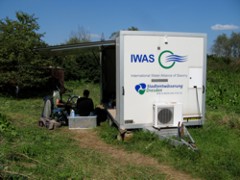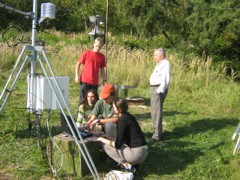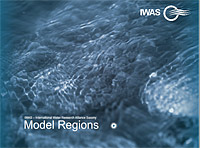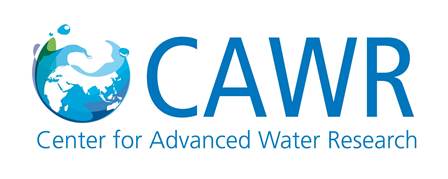Capacity Development
Aims
Capacity Development and knowledge transfer are considered to be central elements for the sustainable implementation within IWRM projects. Approaching those essential factors, however, is often uncoordinated and not adapted to regional peculiarities.
Given the urgent need to shift the focus towards implementation, a key objective of IWAS is to evaluate the influence of capacity development on the implementation of IWRM, especially in the challenging political environment of transition countries. Accordingly, a general concept was developed based on current international scientific results in the field of CD. In order to develop concrete strategies and measures for the Western Bug River Basin (Ukraine), this concept was adapted to the local conditions on various scales.
The overall target of the work package capacity development is to support the other work packages through strengthening of all relevant actors within the river basin management (scientific institutions on regional and national level, vodokanal companies [municipal water companies], environment and water authorities).
Methods
Considering the general CD concept, a profound analysis of the societal and political situation including the identification and engagement of the relevant stakeholders should be conducted first (stakeholder and institutional analysis). This analysis is elaborated under the auspices of the work package governance. The stakeholder and institutional analysis can be seen as a preliminary step for capacity assessment (current state analysis). According to such an assessment, anticipated difficulties as well as existing and missing competencies can be identified and, hence, minimize transaction costs for implementation later on in the process. Furthermore, capacity assessments support efficient resource allocation, since capacity development responses are identified according to their priority. On the basis of capacity assessments, measures are elaborated together with the relevant stakeholders that are necessary for improving the competencies. CD measures can be of different kind, but should be more than human resources development. The international CD research considers the strengthening of institutions as an even more important point than human resources development, not least because this also contributes indirectly to an improvement of the political and societal system. Measures within IWAS include: Technical and vocational education and training of practitioners within the vodokanal companies, support of the academic education, knowledge exchange and transfer, or strengthening of the river basin management through enhanced collaboration between and within the participating authorities. Crucial for the success of such measures is the elaboration of functioning networks in both the academic and the practical arena in order to ensure the mutual exchange of experiences. Therefore, the Ukrainian network of vodokanal companies (Ukrvodokanalekologia) is currently strengthened.
Results
Within the academic arena, networks have been developed between our partner universities in the Ukraine and the IWAS consortium. The collaboration ranges from joint research to joint conferences and joint field work. The capacity assessment showed that the academic education within the water sector is rather sectoral, thus, tailor made IWRM lectures are currently elaborated. Furthermore, the IWRM research should be strengthened, particularly the research on modelling, so that the Ukrainian universities come closer to the European Research Area (ERA).
The capacity assessment for the authorities showed that CD measures are necessary that support the collaboration within and between authorities as well as for the monitoring and the data management. Therefore, also the existing structures of the river basin management (Western Bug River Basin Department and Council) should be enhanced.
Several workshops have been already executed for the vodokanal companies under the auspices of SE-DD and DREBERIS, e.g. workshops on public private partnerships, financing options, tariff rates, etc. Furthermore, a huge measuring campaign with a mobile laboratory was conducted: Analyzing the pollutant load and the flow rate of the wastewater from wastewater treatment plants of 11 vodokanal companies. In order to transfer technical standards to Ukraine, one main standard was translated into Ukrainian language. The German standard setting was explained and discussed in several workshops in close collaboration with the German associations DWA and DVGW. This can be seen as a first step in order to strengthen the Ukrainian water and wastewater network (Ukrvodokanalekologia).

Fig.1 IWAS mobile laboratory

Fig.2 Installation of meteorological station
Contact
Gunda Röstel
Stadtentwässerung Dresden
![]()
![]() gunda.roestel@se-dresden.de
gunda.roestel@se-dresden.de
Marco Leidel
Technische Universität Dresden
Professur für Meteorologie
![]()
![]() marco.leidel@tu-dresden.de
marco.leidel@tu-dresden.de
Corinna Weigelt
DREBERIS GmbH
![]()
![]() corinna.weigelt@dreberis.com
corinna.weigelt@dreberis.com




.png)
.png)
